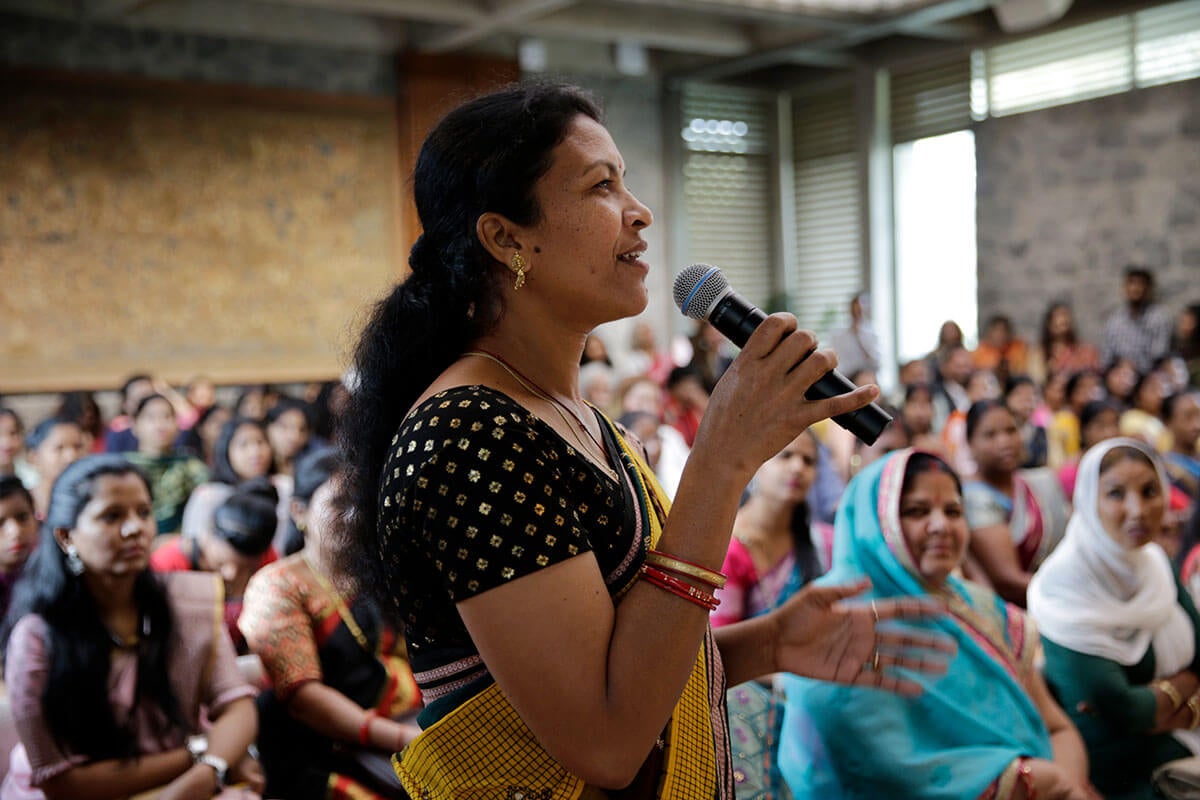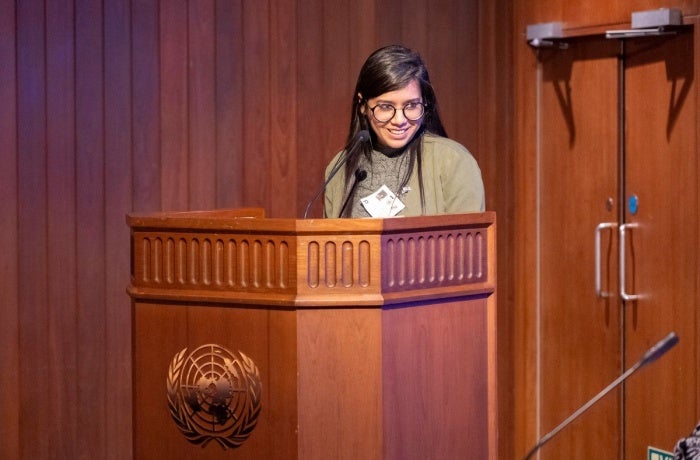India passes law to reserve seats for women legislators
On 21 September, Indian legislators passed the first legislation considered in the country’s new Parliament building: the Women’s Reservation Bill, 2023. The bill, which passed both houses of Parliament almost unanimously—with just two votes against—will ensure that women occupy at least 33 per cent of the seats in state legislative assemblies and the Lok Sabha, the lower house of Parliament.

“Typically, achieving a critical mass of 30 per cent representation by women in Parliament is known to yield positive outcomes for women’s empowerment”, Susan Ferguson, UN Women’s India Country Representative, said in a statement.
At the time of the bill’s passage, about 14 per cent of Lok Sabha legislators were women. While that represents India’s highest proportion since its independence, it was far below the global average of 26.5 per cent, or the Central and Southern Asia average of 19 per cent.
Among the state legislative assemblies, Chhattisgarh has the highest level of women legislators, at 18 per cent, while Himachal Pradesh has just one woman legislator and Mizoram has none.
The new legislation requires that, in each election, 33 per cent of seats in the assemblies and the Lok Sabha be assigned for only female candidates. The bill became law after receiving the assent of President of India Droupadi Murmu.
The bill’s passage “is a historic day”, said Asha Bajpai, a former founding dean and law professor at the Tata Institute of Social Sciences in Mumbai, who is now a visiting faculty member.
“This law will now enable greater participation of women in policymaking and equitable governance at the state and national levels”, Bajpai said. “The inclusion of women will give the vast majority of the population a voice in how their lives should be run”.
The law was a long time in the making. The first version of a Women’s Reservation Bill was introduced to parliament in 1996, and “almost every administration has attempted to approve it”, Bajpai said.
The legislation is scheduled to come into force after India publishes its next census, the date for which has not been set. It will then remain as law for 15 years. It will not affect seats in the Rajya Sabha, the upper house of parliament, where women constitute only 13 per cent of members.
Similar legislation has been enacted in 64 other countries, ranging from Belgium to Rwanda. Rwanda’s 2003 constitution set a 30 per cent quota for women in elected positions, and 10 years later the country became the world’s leader for gender equality in politics, with women occupying 64 per cent of parliamentary seats.
Such quotas have “empowered women, inspired them to take leadership roles, and helped in allocation of resources” Bajpai said.
“India’s bold step sends a clear message to the world that the path to gender equality is not only essential, but attainable”, Ferguson said.









